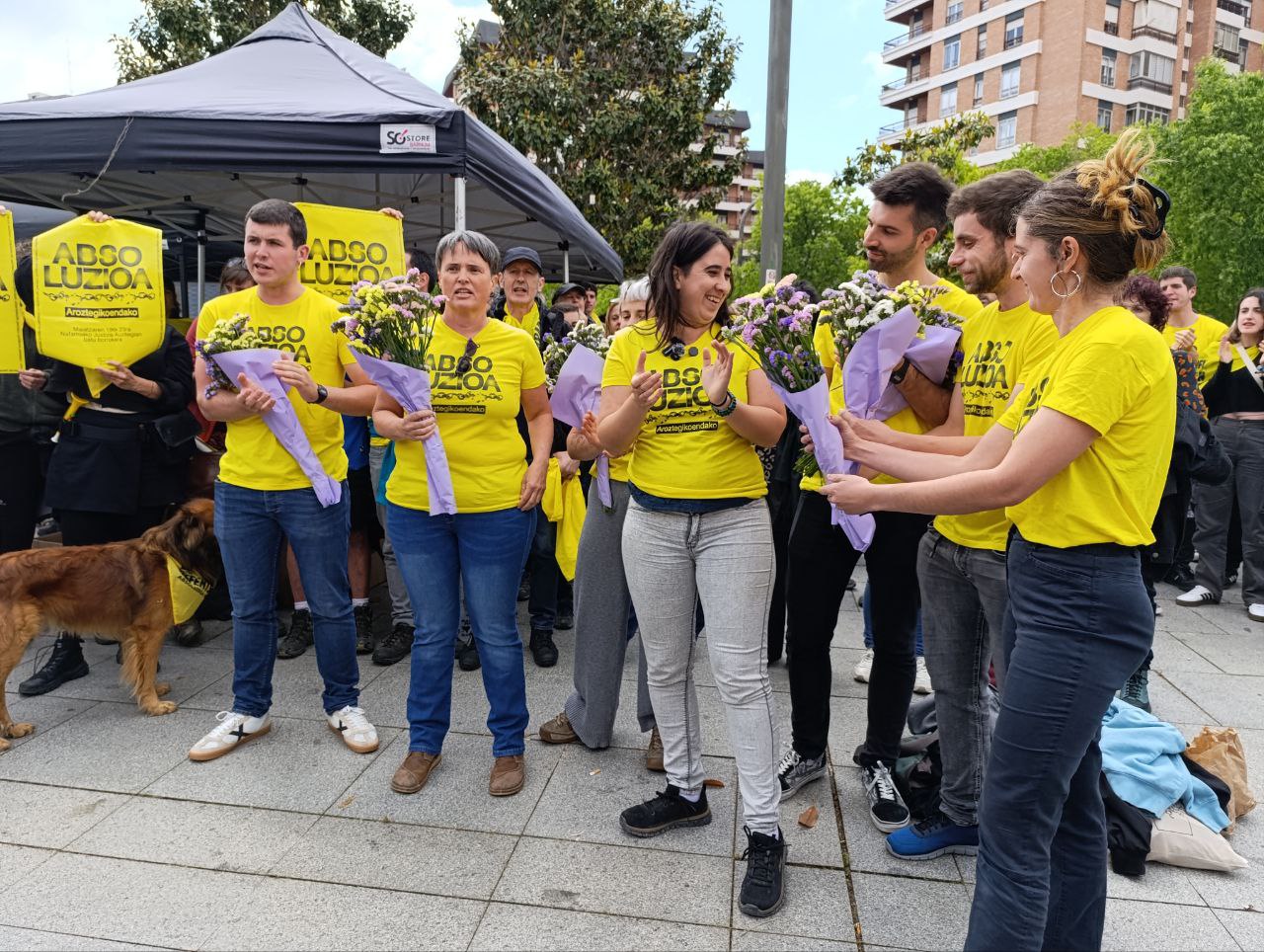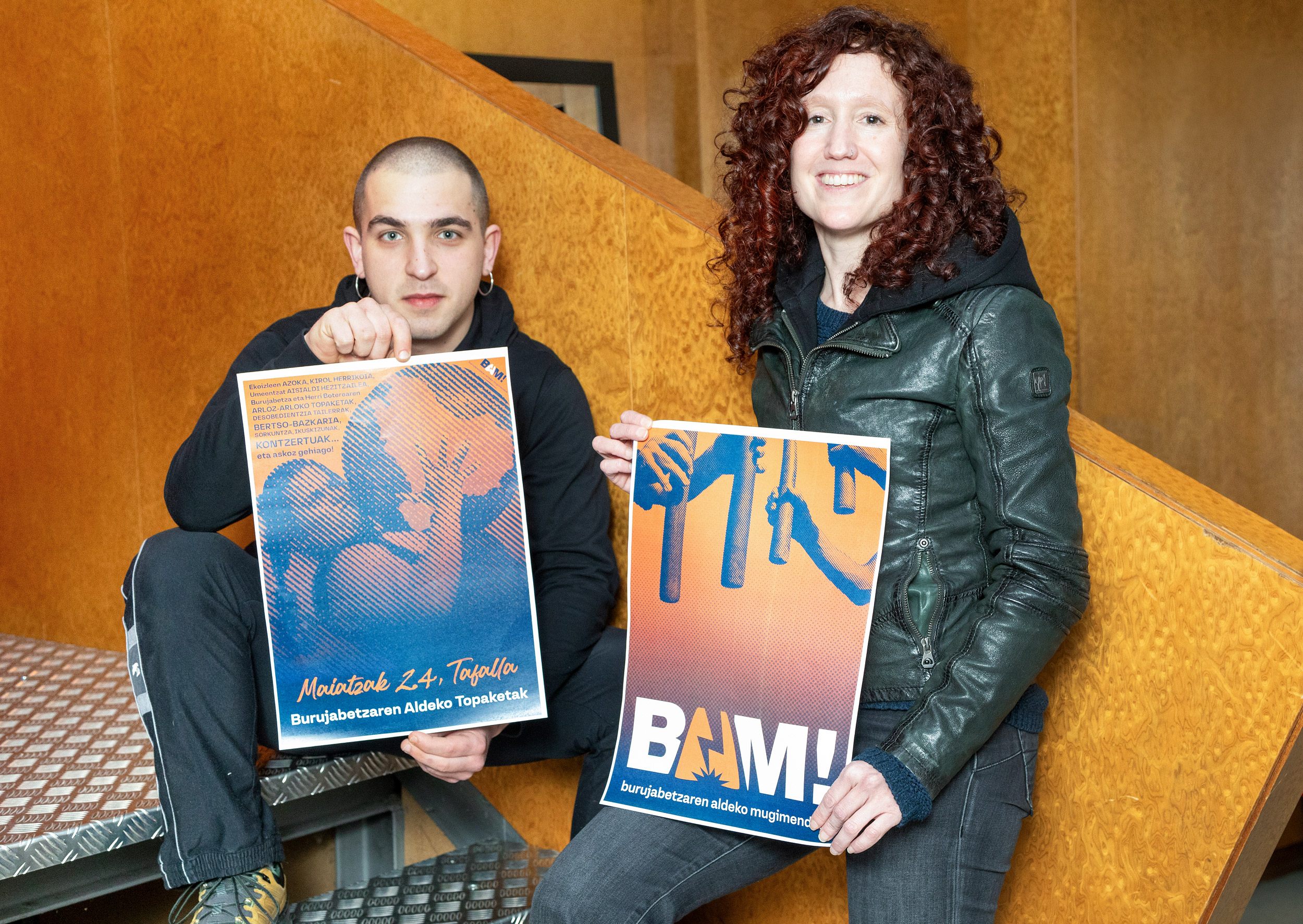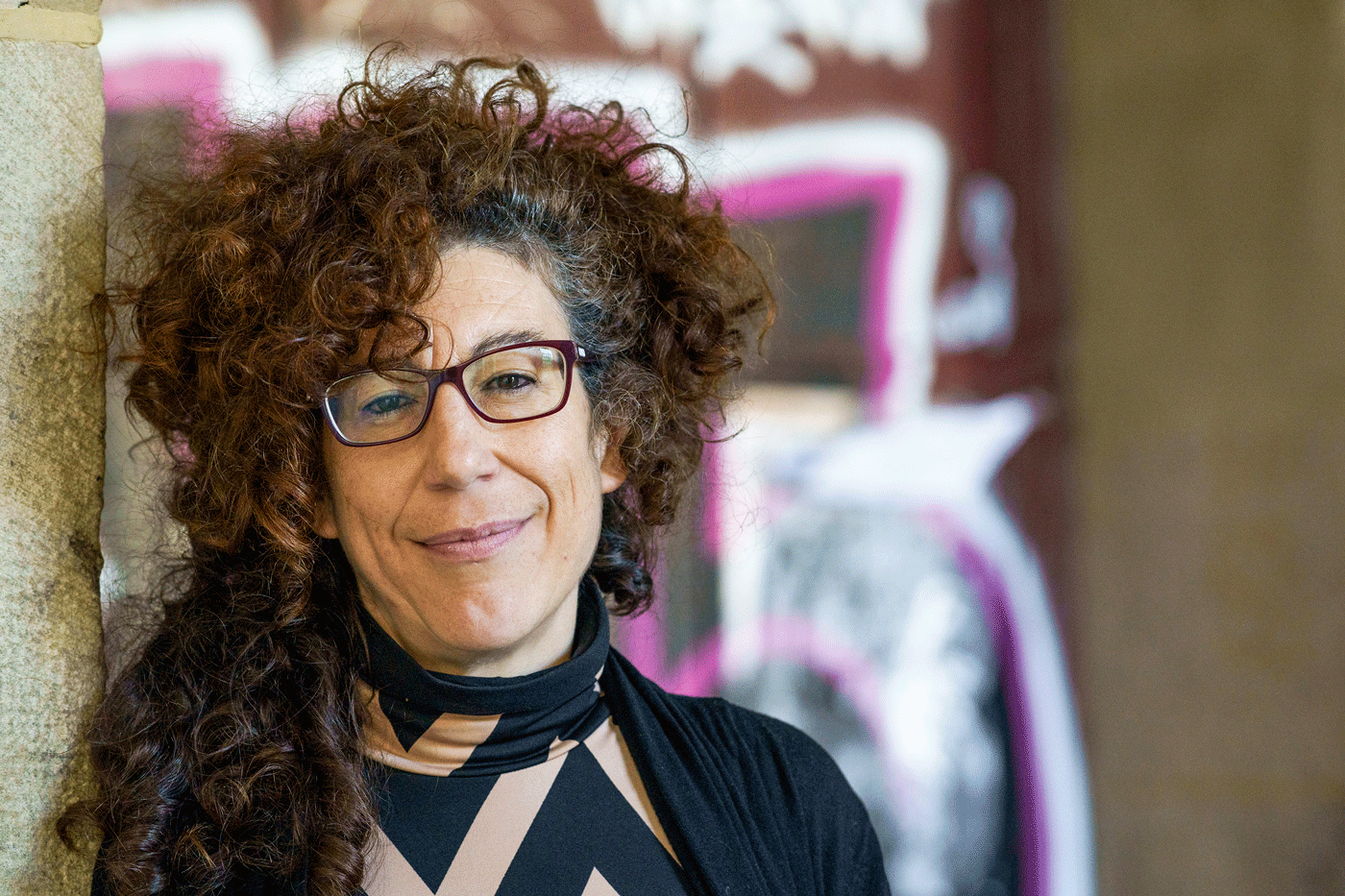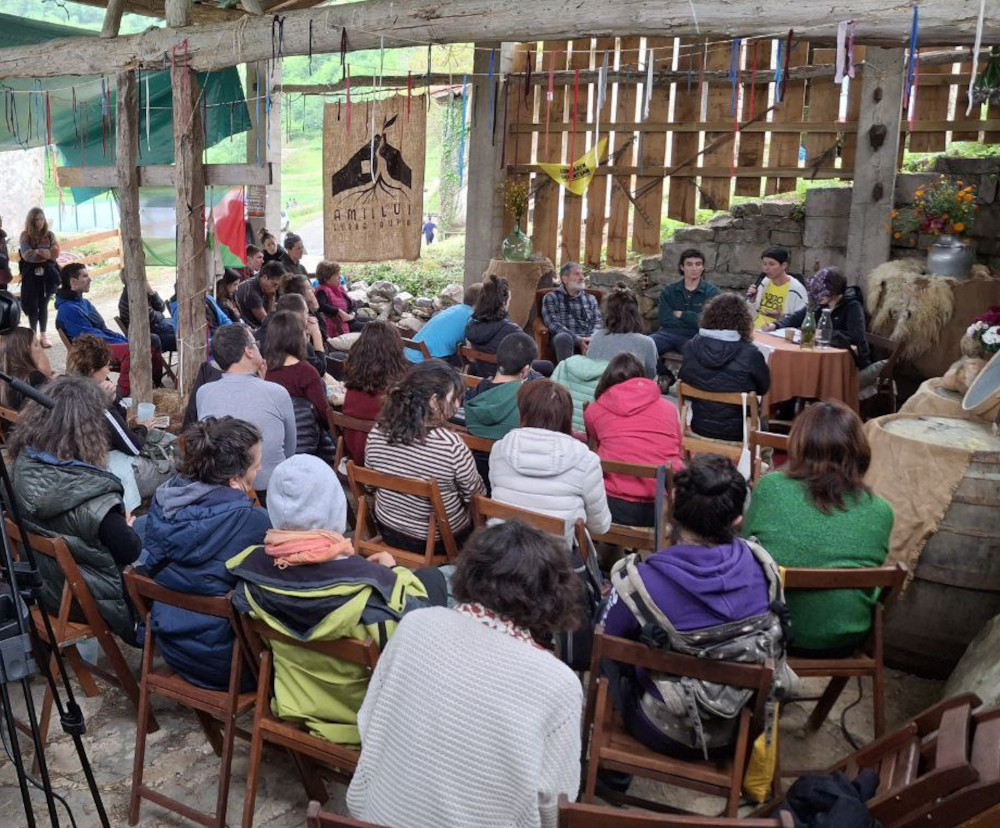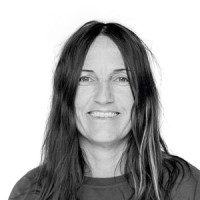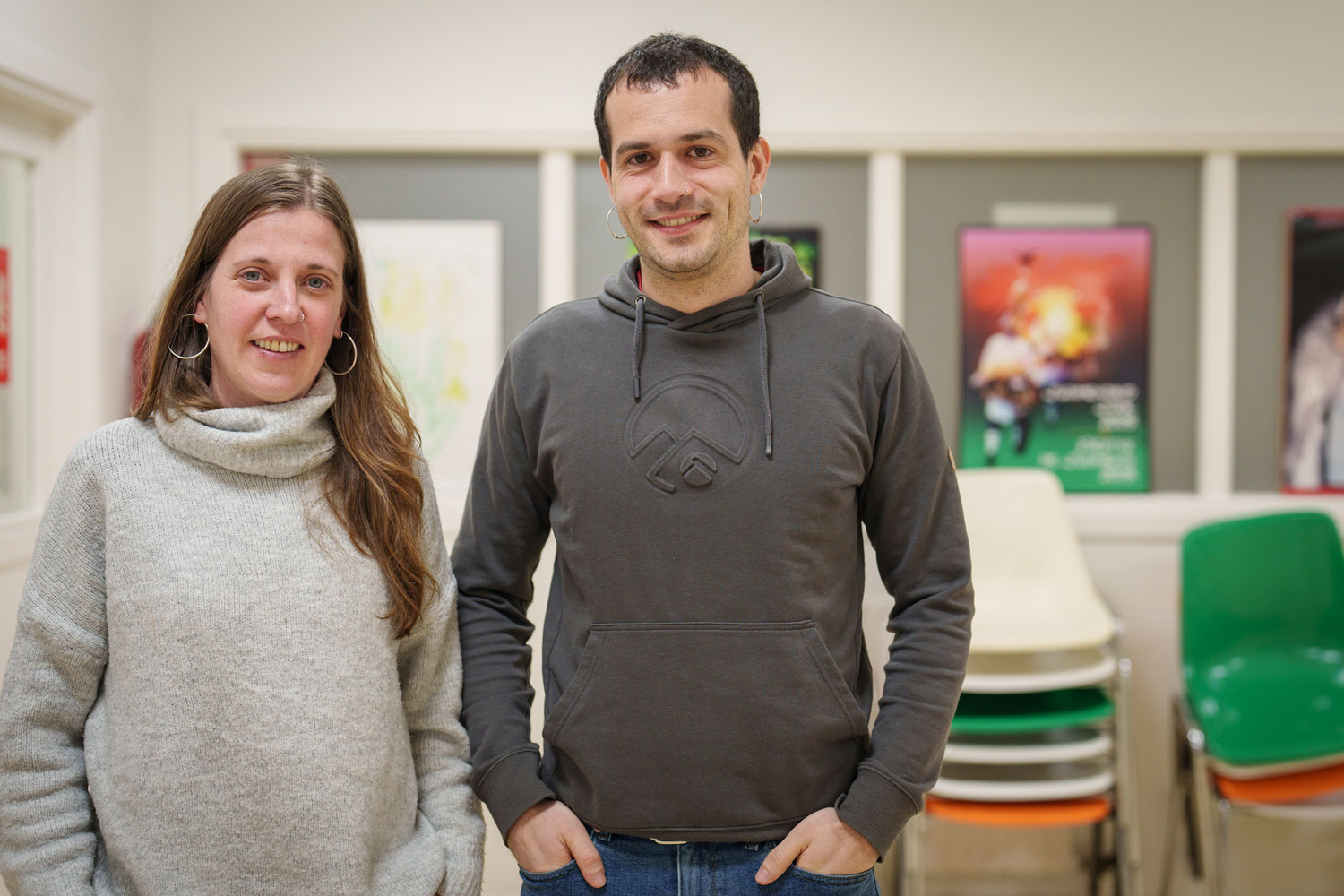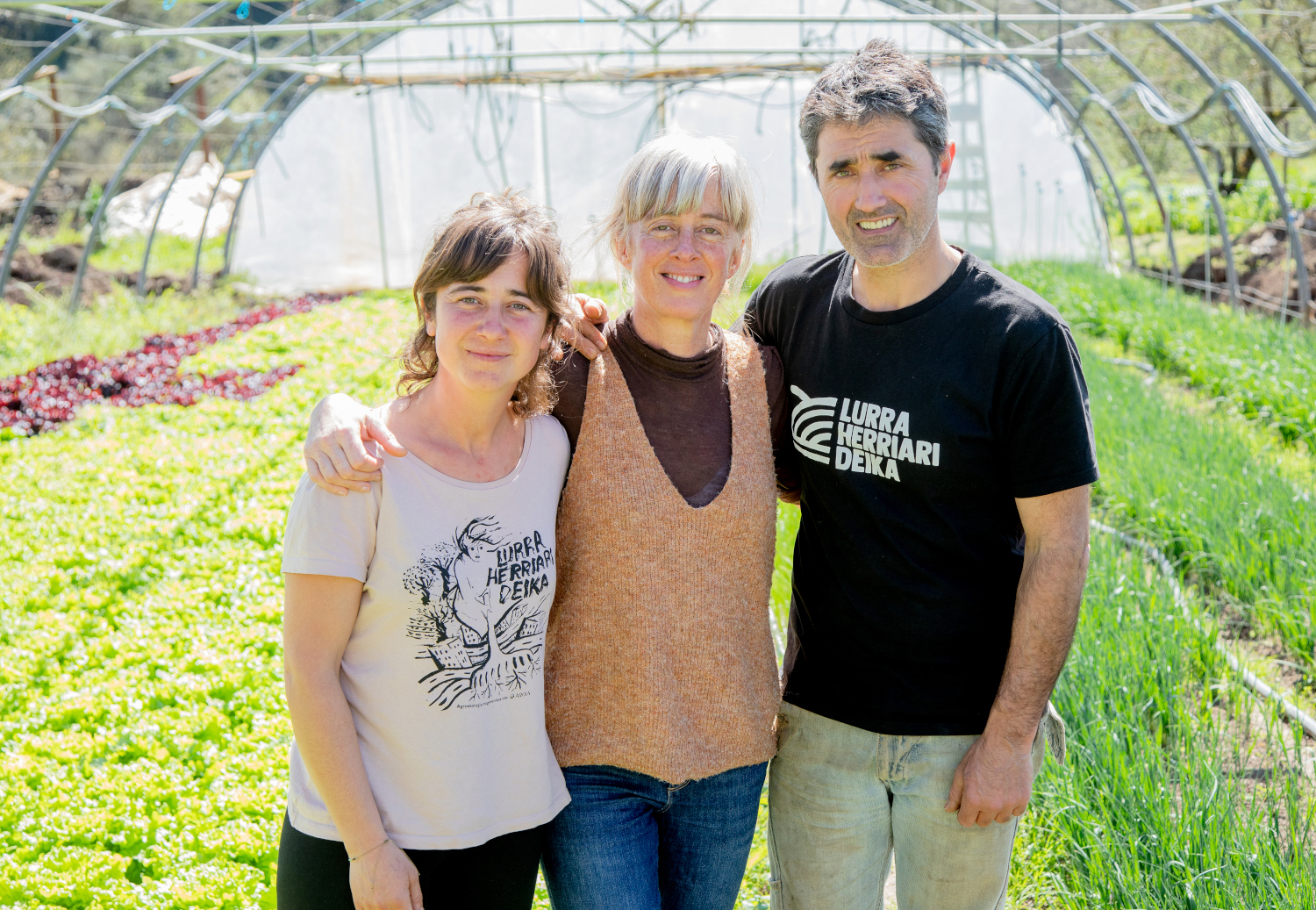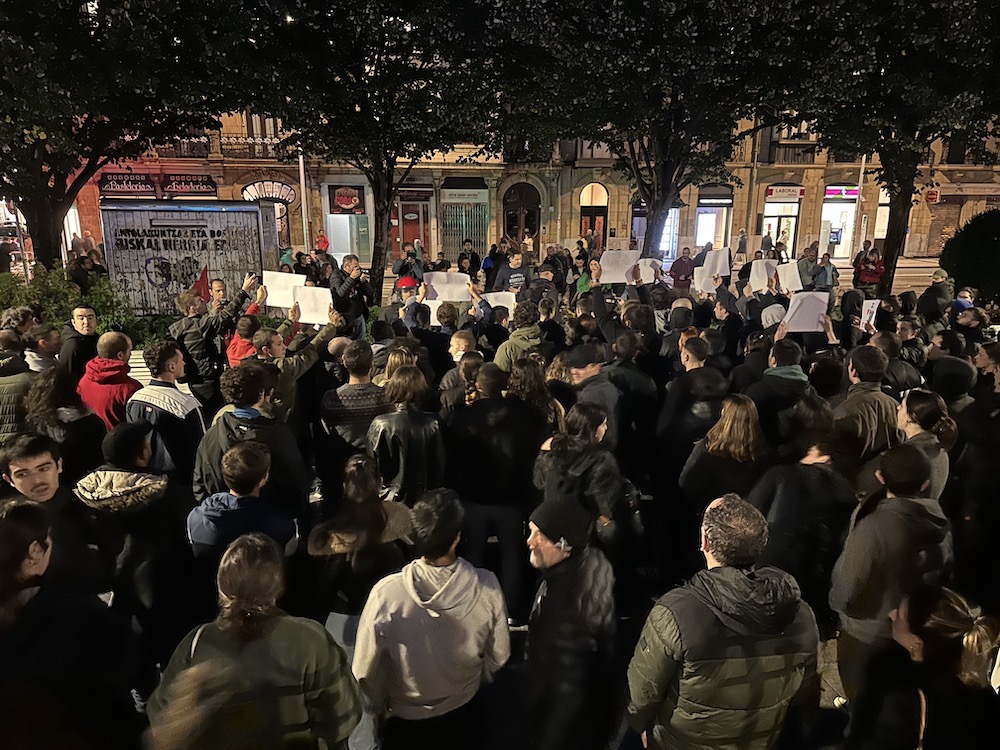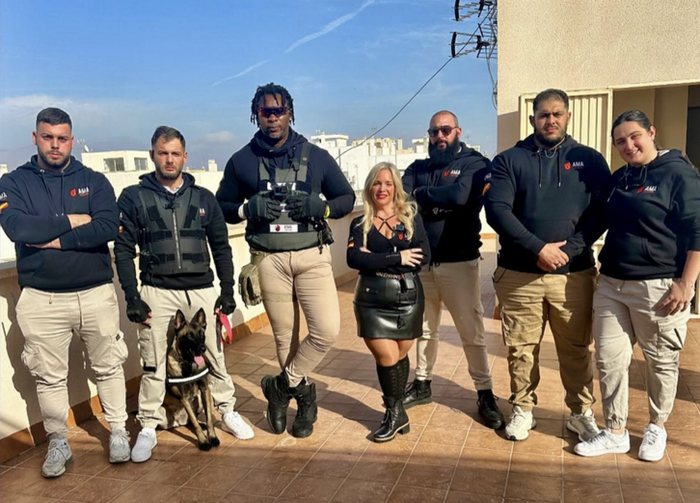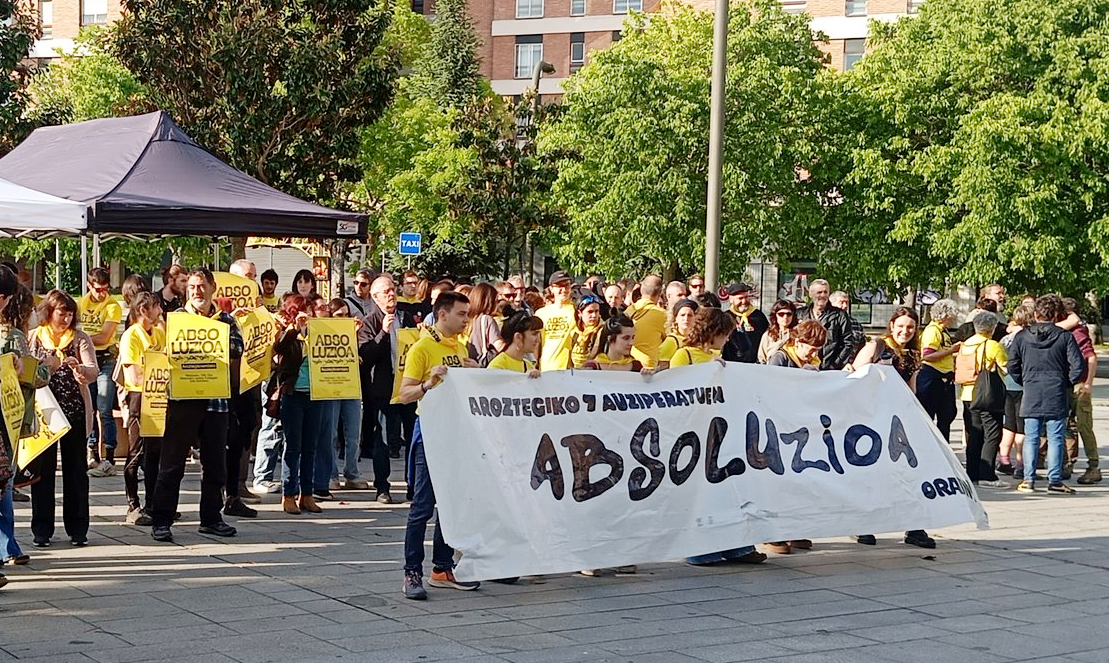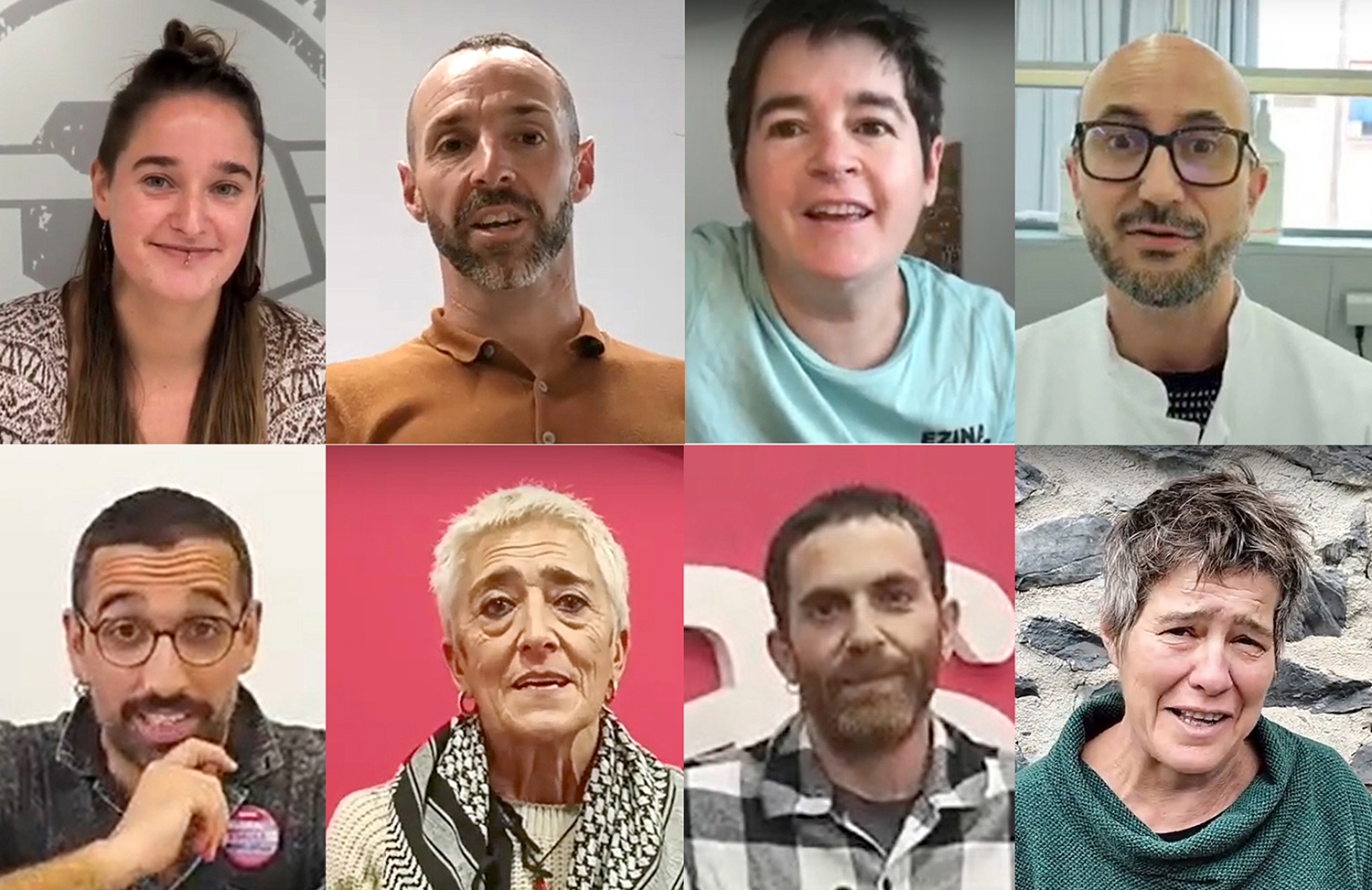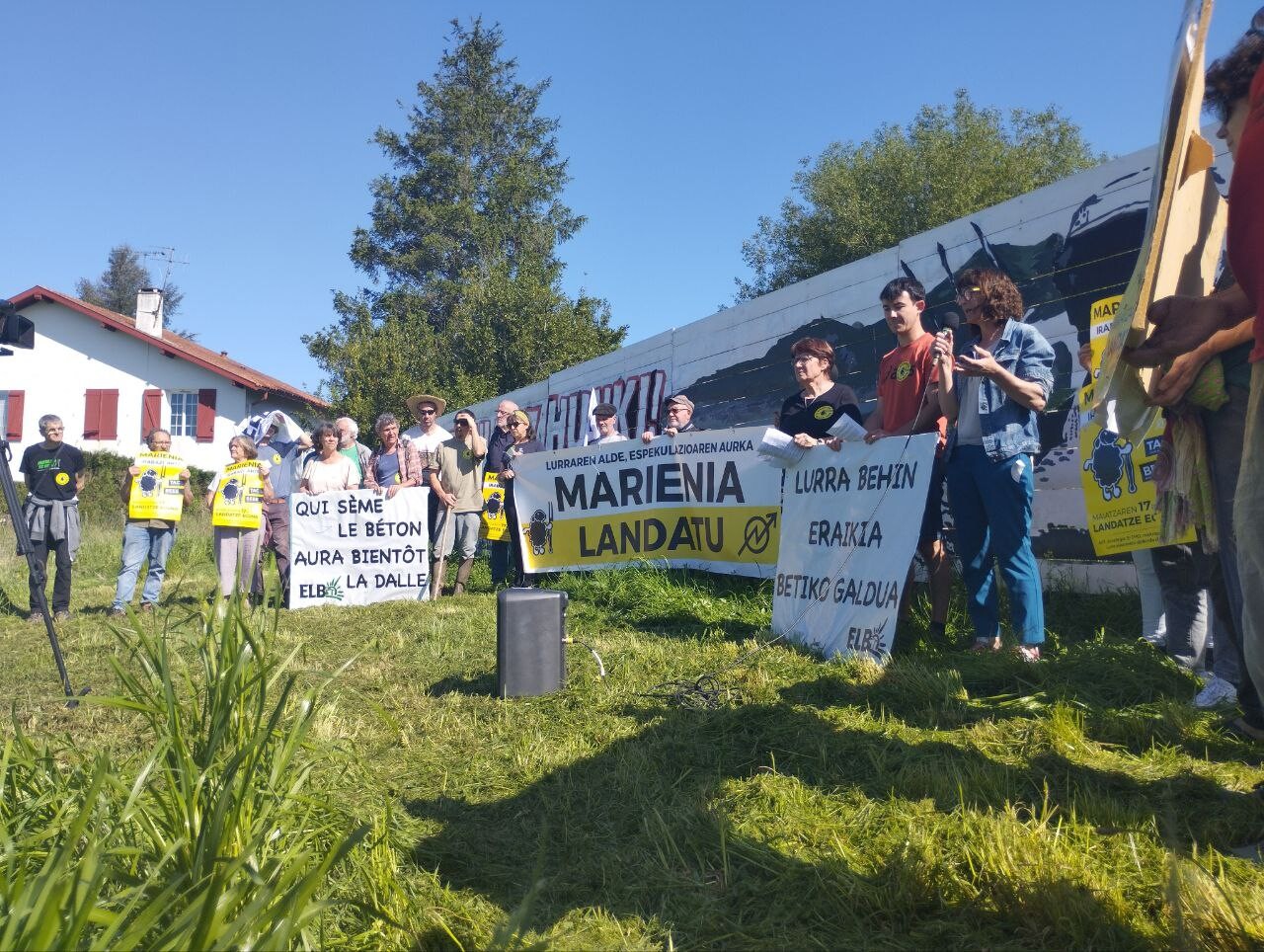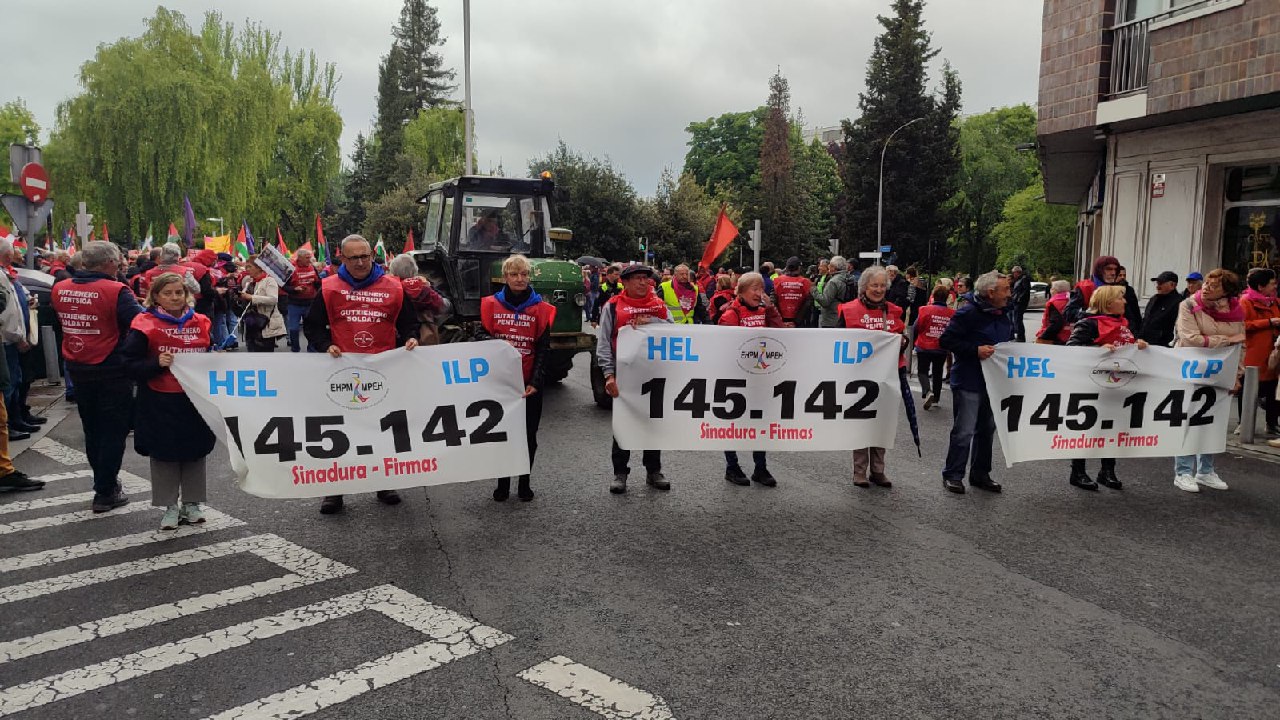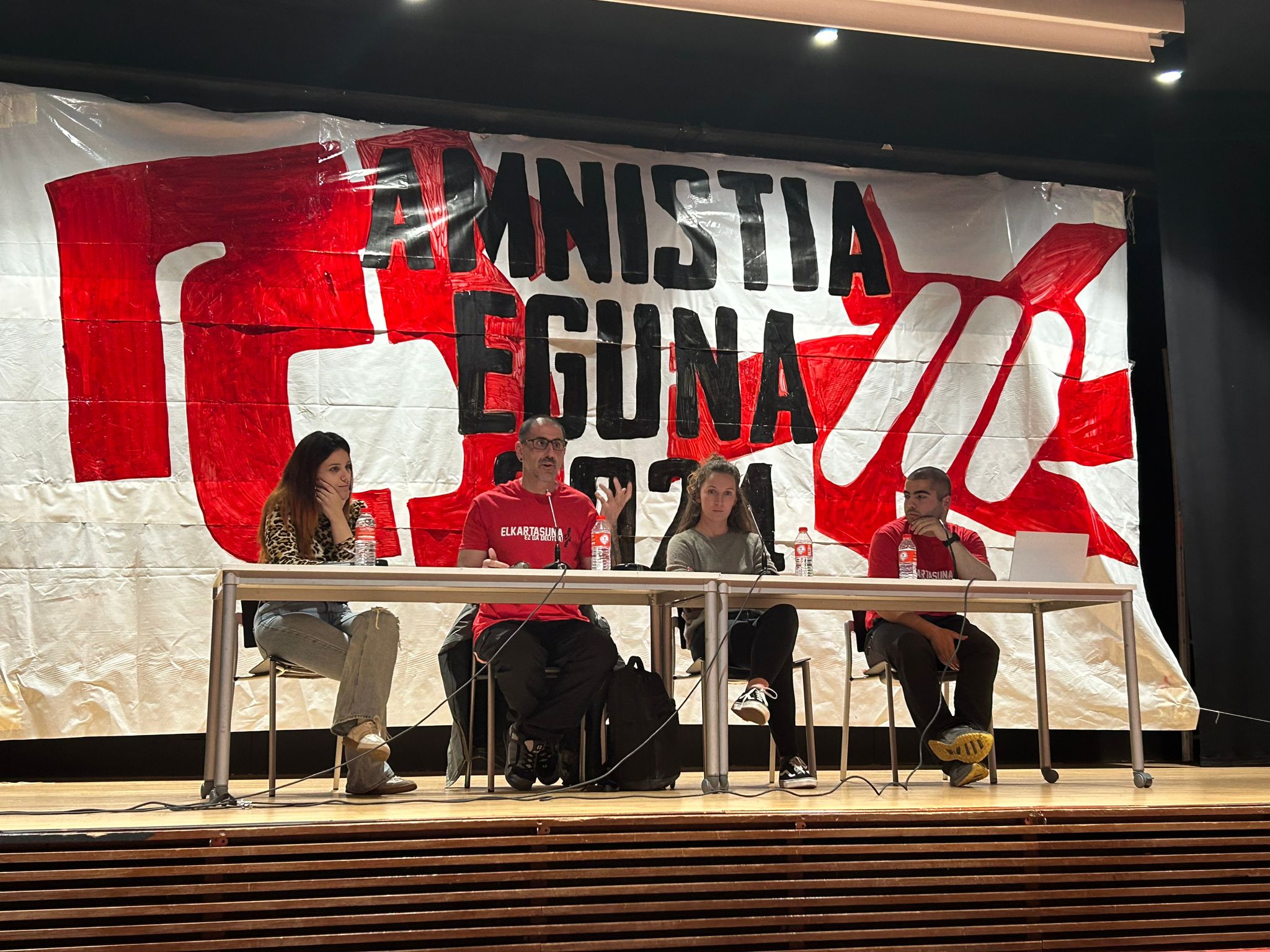"Alliances must enable capitalism to withstand the homogenization of life"
- This year at the Miramar Palace in Donostia-San Sebastián the Tejiendo Days have been held from local initiatives, within the Summer Courses of the UPV. Within the course, the Italian Maria Livia Alga has given two lectures. “The world is here. Ethnography of alliances” is the name of his research thesis. He has researched the alliances in popular movements against racism and LGBTBIphobia. In 2018 he published the book Ethnography “terrona” of excentric subjects in Spanish with the foreword of Mari Luz Esteban.

He has analyzed the responses to racism and LGBTBIphobia from popular movements, focusing on articulations and alliances.
For me, the struggles against homophobia and racism go together, they're not different things. My interest in these struggles comes from my experience in feminism. I thought it was important to see how feminism took the criticism of African women and their descendants and lesbians. It shows the transformation that is taking place in feminism.
I've researched two places, and that's really important. Verona, Palermo, south of Italy and northeast. The political, economic and cultural context of each of them is very different. Also in the field of racism and homophobia. Everyone thinks that in the South there is more homophobia and less racism and in the North the other way round. I started by dismantling this dichotomy, trying to understand the deep cultural dynamics of each context. But bearing in mind that, at the same time, both cities are part of the same national context. The Italian nation experienced strong cultural unification and uniformization with fascism. Fascism whitens southern Italy with the aim of initiating and justifying the colonization of Africa. Before that, southern Italy was considered to be Africa, a territory of land and wild people.
"The Italian nation experienced a very harsh process of cultural unification and uniformization with fascism. Fascism whitens southern Italy with the aim of initiating and justifying the colonization of Africa. Before that, southern Italy was considered Africa, a territory of land and wild people."
He says that this dichotomous look has also spread to popular movements.
In the studies of popular movements, Iparralde has always been considered a very organized territory: where there are associations, unions, mobilizations and where the social struggle is organised brilliantly. The South, on the contrary, would be a place of great social disintegration, with a family vision, without shared value for common life.
But in my militant experience, I've lived the opposite. Palermo is a very intense time in both the feminist struggle and the fight against racism and homophobia. This is a generation that has experienced a movement against the Mafia and that has fought against all oppression. This has created a close connection between people, has provoked a very intense and organized mobilization of the people at the bottom. This is a process that has been going on since 2000. The last massacre of the Mafia took place in 1992. The movement against the Mafia that followed mobilized the whole of society and led it to deal with what was happening in society itself. Now there is an extreme struggle on the street and the town hall on the left. The fight against oppression is highly organised and cross-cutting. Anti-racism and homophobia movements include alliances and mutual support. For example, the presence of the LGTBI movement in the struggles on migration in the Mediterranean is important.
In Verona, on the other hand, there is a right in the municipal government, an extreme right, and the mobilization takes place in a more secretive way. I've seen a more clandestine and fragmented entrepreneurship. This does not mean that they are not effective. I think there are very real, profound ways of getting rid of the oppression even of more hidden activism. In the women's house in which I participate, for example, a deep reflection is made about the relations between women, taking time to know them.
There have recently been a couple of major mobilisations in Verona. For the first time on Pride Day and in a demonstration under the slogan “one less no”. But it's very new, after my research (2015).
Have you investigated movements against racism and homophobia in general, or concrete initiatives?
Specific. Women's houses in Verona. In Palermo, for example, the lesbian Palermo movement. This is a cross-cutting movement, open to women in Palermo and migrant women. Lesbisissima is a word that did not exist. We took this word from a very well-known book, Palermo congratulssima and retouched. A lot of people told us that they felt identified with the term. Not as “I am a lesbian”, but as an identification with the city and born from below. It was a way of saying, “No matter who I am, I am part of this movement.” Hence the importance of creating new words when creating new meanings and messages.
You've focused on building alliances. In his speech he said that there is an excessive fragmentation of struggles and movements. You have chosen to strengthen unity while respecting differences. How?
For example, in the space of women in Verona there was much talk about cultural differences, nothing about sexuality. At one point we started to raise a few issues. The women who decided to love were there, but that wasn't coming out. I think it's interesting to talk about sexuality in a multicultural space and talk about migrants with lesbians. Talking about experiences.
The issue of migration and displacement in general affects us very deeply. We've all experienced displacement in our lives. It's the experience that connects us. Sexuality, too. I don't think it's so important to talk about lesbianism with people who are migrated, but about sexuality. There are places we meet. And where we don't meet, I respect.
What does not serve is any kind of assimilation, any integration. I believe that a very strong resistance must be placed on how to integrate into the Western model. Alliances must allow us to resist the capitalist model, the homogenization of lives.
.jpg)
It advocates the construction of “non-oppressive solidarity communities”. The creation of common spaces that feel all people from their own place. Has Palermo lesbisissima mentioned before, the campaign “we are all clandestine” was along the same lines?
In Palermo “we are all clandestine” was very important. When we started the initiative in Italy there was no possibility of civil marriage. Clandestine work was then, for many, a common condition that we could impose on each other: being clandestine means being out of the law, even out of institutional oppression. It can be a resource for us if it is positive.
He has also opted for multiple identities that will not be binary. For this purpose, it claims the need for “third spaces”. What are they?
I, you black, I western, African, poor rich... It is important to take into account these differences, which are the differences of power and opportunity. But it's not the end of the struggle. Because the end is to realize that we're different, it's power that tells us what we are and what we should do. I think we have to go somewhere else, where we're not just different, where we're going to build common spaces to live together. The concept of the third space is quite widespread. It indicates that we can find ourselves in another dimension. Not entirely mine or anyone but at the same time everyone, not only in the dimension of oppression and distance, but also in which it unites and liberates us. Palermo lesbisissima or "we are all clandestine" are processes of relational rebirth.
In Verona, for example, in the cultural center we called ourselves "pirates." For us, it was a way of not believing that the bureaucratization and institutionalization of lives is good. The pirate life. In this third area, it is also not necessary to share it. If you know that there is something that can generate definite conflicts, you do not need to challenge coexistence. When there are Muslim people, such as around the pig or alcohol. Before, there were many conflicts. Now, both Muslims and those who are not, we have learned to find a measure: I do not cease to be myself today and at this moment for not drinking alcohol, it is not so essential for my life. And it's also not so essential for a Muslim, even though today and right now he's been drinking alcohol or eating pork.
"The conflict is not just between Muslims and non-Muslims. There are conflicts between us who are not and Muslims. It is important that the line of conflict is not placed only in these interinities".
But there are conflicts that can cause ruptures, right?
If there are deep interpersonal relationships, I think it's not a matter of rupture or conflict. It's sharing experiences without judging. An example of the third space is the stepdaughter. There was a great conflict between society and us: in school yes or no, in town hall yes or no, in the ID ... We decided not to put conflict in the women's house in the parameters established by power. It asks us time, a year's work. How we can position each other to learn. A year to think about it and say something real.
We wanted to work it differently, and in the end we approached it from a common point: the experience of the sacred. For us, the process was a complete revelation. We have seen the line of conflict moving entirely. Like those born in Italy, we have an internal conflict around what is sacred to us. We're talking about nuns, children's schools -- the relationship of many Italian women to religion is an attempt to distance themselves. What does it mean to relate to women who have a very strong faith? It has opened up new visions to us on issues that are important to life: for example, what do I believe in? It has also been important to us to see the differences between Muslim women. Some wear it, others don't, the reasons are different among those who wear it. We reached the common point where the hijaba was a refuge. We all need protection. It doesn't matter what protection you've chosen, but protection matters.
The conflict is not just between Muslims and those who are not. There are conflicts between us who are not and Muslims. It is important that the line of conflict should not be placed only in these inter-inequities. The complexity of conflicts is great.
I have had days of visits, experiences and reflections. There I am, trying to make intersectionality a reality, trying to connect struggles, trying to say all the points as bertsolaris, without pounding...
From the community radio station LoRa where I work, we organized a round... [+]








